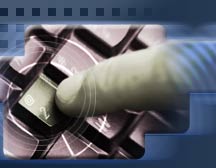




The race for renewable energy has passed a turning point. The world is now adding more capacity for renewable power each year than coal, natural gas and oil combined. The electricity system is shifting to clean.
Renewable energy is generally defined as energy that comes from resources which are naturally replenished on a human timescale such as sunlight, wind, rain, tides, waves and geothermal heat. Renewable energy replaces conventional fuels in four distinct areas: electricity generation, hot water/space heating, motor fuels and rural (off-grid) energy services.
The growing amount of decentralized power generation and a rise in total energy efficiency are leading to numerous new challenges for the power grid.
Smart grids will help to meet these challenges. Information and communication technologies are being used to create integrated data and electricity networks with pioneering functionalities. For example, intelligent control systems can regulate fluctuating electricity generation from renewable energies and electricity consumption.
Smart grids ensure that systems and grids operate safely, efficiently and reliably and help to reduce the need to expand the power grid.
Intelligent measuring systems – smart meters – installed on the premises of end-users are a component of smart grids. They are one element in increasing energy efficiency and also help to save electricity. They also support the power grid's new functionalities. Installing smart meters with end-users is an integral part of the 2050 Energy Strategy.